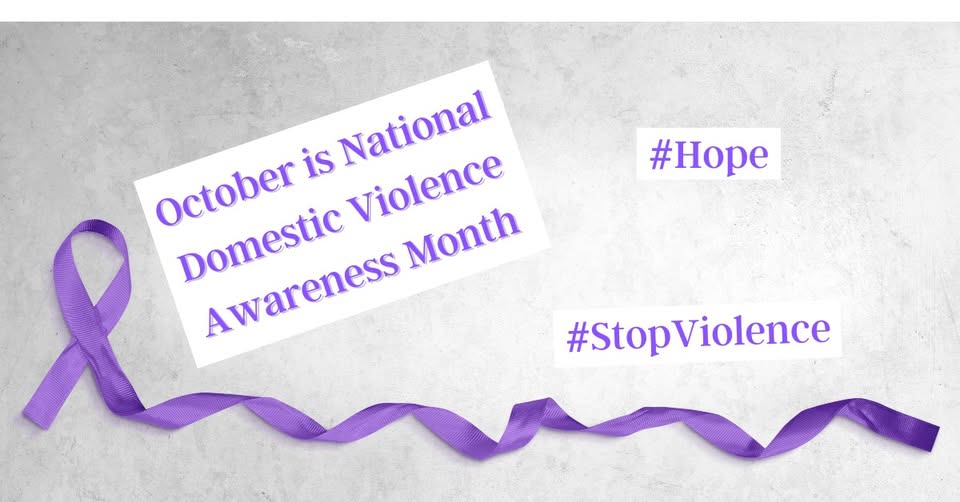October is National Domestic Violence Awareness Month

According to the Centers for Disease Control and the National Domestic Violence Hotline, 1 in 3 woman (35.6%) and 1 in 4 men (28.5%) in the US have experienced some form of physical violence by an intimate partner in their lifetime. An average of 24 people per minute are victims of rape, physical violence, or stalking by an intimate partner in the United States. This is more than 12 million woman and men over the course of a single year.
What constitutes domestic violence?
When most people think of domestic violence, they think of physical violence against a partner. However, domestic violence constitutes much more than that. Domestic violence can include emotional abuse, psychological abuse, financial abuse, sexual abuse, and digital abuse, such as harassment or stalking via technology.
A resident of North Carolina can file for a Domestic Violence Protective Order (DVPO), regardless of citizenship or immigration status. A DVPO can be obtained against anyone with whom you have a personal relationship. This includes a spouse, former spouse, a person who currently or previously lived with you or in the same household as you, a person with whom you have a child, a person of the opposite sex with whom you have had a dating relationship, or a parent, child, grandparent, or grandchild. These are sometimes referred to as “50Bs”. Another type of DVPO, commonly referred to as a “50C” (Civil No Contact Order), can also be obtained by parties who are not in a personal relationship. In order to file for a 50C, you must show that you have been the victim of unlawful conduct, such as nonconsensual sexual conduct, stalking, intimidation, or harassment.
Benefits of a DVPO…especially where children are involved
Obtaining a DVPO can be beneficial, in that it allows the court to order physical separation from an abuser and it also provides for legal consequences such as incarceration for violations of the DVPO. Further, a DVPO can provide temporary custody and financial support for a limited period of time until the family courts can enter appropriate orders. Providing temporary custody protection is especially important in situations where there are children involved, as witnessing domestic violence can have long-term emotional and psychological effects on children. According to the Childhood Domestic Violence Association, in homes where domestic violence occurs, children are physically abused or seriously neglected at a rate 1,500% higher than the national average. The United States Department of Justice and National Domestic Violence Hotline reports that children witnessed violence in nearly 1 in 4 (22%) intimate partner violence cases. One study by UNICEF found that children exposed to violence in the home were 15 times more likely to be physically and/or sexually assaulted than the national average. The National Criminal Justice Reference Service (NCJRS) found that in homes where intimate partner violence occurs, there is a 30% to 60% chance that child abuse is also happening.
Process of obtaining a DVPO
Generally, the first step in obtaining a DVPO involves the alleged victim (called the Plaintiff) filling out the DVPO paperwork, including a Complaint, which details the allegations of domestic violence committed by the alleged abuser (called the Defendant). The judge will review the paperwork and ask the Plaintiff questions about the allegations. The judge may grant an ex parte DVPO, providing the Plaintiff with various protections for a short period of time (usually no more than ten days) until a full hearing can be had on the allegations and the Defendant can present their defense to the allegations. After a hearing, the judge may enter a permanent DVPO, providing the Plaintiff with various protections for up to one year. The Plaintiff can also renew the DVPO for up to two years if a judge later finds that renewing the DVPO is necessary. There are exceptions to this process as each case is different, therefore, it is best to speak with an attorney to fully understand your rights.
Fighting False Accusations….it does happen
Domestic violence is a real problem. However, unfortunately, there are instances when someone may be falsely accused or the alleged conduct in the DV Complaint does not constitute domestic violence. If you have been served with an ex parte DVPO, and you believe that the allegations are untrue or do not constitute domestic violence, then you should immediately speak with an attorney. Having a DVPO entered against you may impact your ability to have custody or contact with your children, may prevent you from obtaining employment, or prohibit you from owning a firearm.
Protect Yourself
Whether you are the victim of domestic violence or have been falsely accused of domestic violence, we are here to help you.
At Ward Family Law Group, our attorneys understand the complexities of domestic violence cases and are experienced in fiercely advocating for your rights and protecting your safety. Our firm is dedicated to assisting you secure a safer future, both for you and your children.
To learn more about obtaining a restraining order, contact us.